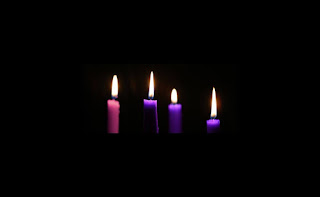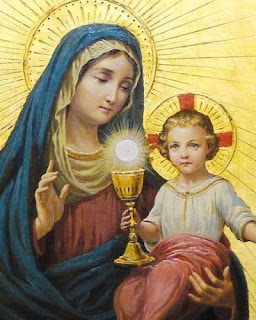Sin against the Holy Spirit
Reflection for the
Celebration of the Sacrament of Reconciliation
Matthew 12: 22-37
Actual photo of Don Bosco hearing Confession from his students
To
understand what “sin against the Holy Spirit” is, the unforgiveable sin that
Jesus declared, we have to understand the context upon which the statement is
made. Jesus just cast out demons from a
man. According to the theology of the
Jewish people, only God has such power and the person who can use that power
has to be from God. Of all the people,
the Pharisees and the scribes knew that theology well. They taught it and they reinforced it. However, they just could not accept the fact
that Jesus of Nazareth was sent by God.
No way! Not an ordinary poor
carpenter of Nazareth, not the one who calls them out on their hypocrisy, not
the one who challenges the comfortable lifestyle of the ruling class which they
belong. Out of pride or jealousy, or
both, they had to lie. All people who
were present at the scene were amazed and recognized the power of God. The Pharisees and the scribes had to lie
because Jesus did not fit their narratives.
Instead of acknowledging that it was the power of God that Jesus
possessed, they claimed it was the power of demons. They lied to the people they taught, but more
seriously, they lied to themselves.
It is right
in that context that Jesus made the statement.
We have to understand it more a warning than a done-deal
condemnation. It would be something like
this: if you don’t honestly acknowledge your problems, your brokenness, and
your sins, first of all, to yourselves, then to the Lord, then to your brothers
and sisters, you will not receive the grace of the Holy Spirit, the grace that
forgives sins, heals wounds, and redeems sinners. There is no sin that cannot be forgiven. Only when we do not acknowledge it as sin can
it not be forgiven. Modern psychology
would agree with Jesus as it says, “We are as sick as our secrets.”
Probably we
wouldn’t flat out lie that we don’t sin.
But we do rationalize what we did wrong, or we blame someone else or
something else for what we did.
I would also
say that this is not only true on the personal level, but also on the communal
level. If a family, a community, or a nation continues to lie to
self and others, or keeps rationalizing and blaming others for what they
have done wrong, that community will continue to suffer from sickness. There will be no moving forward. There
will be no true freedom and peace.
With that
said, however, I invite you to focus more on something else. Instead of focusing on the
unforgiveable-ness, focus more on the power of the
Holy Spirit when we celebrate the Sacrament of Reconciliation. Christ uses the power of the Holy Spirit to defeat
the devils, the same Holy Spirit for the forgiveness of sin. You will hear that in the Absolution that the
priest imparts:
“God, the Father of mercies, through the
death and resurrection of His Son, has reconciled the world to Himself, and
sent the Holy Spirit among us for the forgiveness of sin.”
Upon
receiving this Holy Spirit, we are forgiven, we are healed, we are redeemed and
renewed. That is what’s happening
inside, and the people around us will begin to see the outward fruits as the
Gospel teaches. The good fruits will be
felt by us first, then by the people close to us.
It is true
that we may fall to sins again and again …, that is what we humans do. But every time we honestly and humbly come to
the Lord in this Sacrament, the Holy Spirit is given again and again.
And the
fruits of the Holy Spirit will be the peace and the joy that we feel, the
compassion and the patience that others see in us. We will receive the grace of humility and
trust which is the guarantee of our salvation.
Note: My reflection is based on the commentary on this Gospel passage by Fr. Rolheiser in his classic book, "The Holy Longing."



Comments
Post a Comment